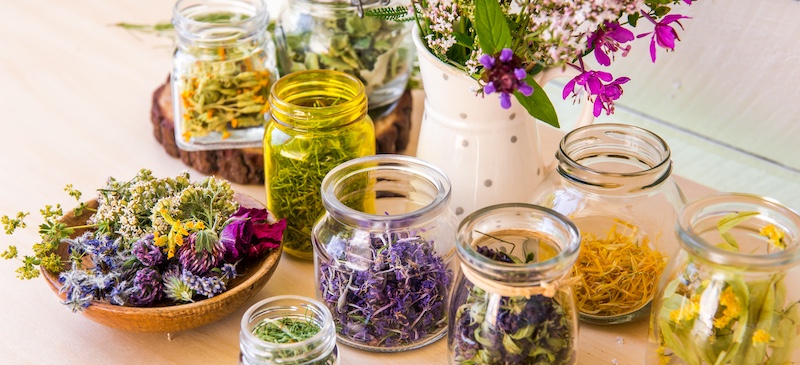This Dr. Axe content is medically reviewed or fact checked to ensure factually accurate information.
With strict editorial sourcing guidelines, we only link to academic research institutions, reputable media sites and, when research is available, medically peer-reviewed studies. Note that the numbers in parentheses (1, 2, etc.) are clickable links to these studies.
The information in our articles is NOT intended to replace a one-on-one relationship with a qualified health care professional and is not intended as medical advice.
This article is based on scientific evidence, written by experts and fact checked by our trained editorial staff. Note that the numbers in parentheses (1, 2, etc.) are clickable links to medically peer-reviewed studies.
Our team includes licensed nutritionists and dietitians, certified health education specialists, as well as certified strength and conditioning specialists, personal trainers and corrective exercise specialists. Our team aims to be not only thorough with its research, but also objective and unbiased.
The information in our articles is NOT intended to replace a one-on-one relationship with a qualified health care professional and is not intended as medical advice.
Seasonal Herbs: How to Use Fresh Herbs for Every Time of Year
September 24, 2025

Herbs have been a cornerstone of culinary traditions and natural medicine for centuries. From boosting flavor in your favorite dishes to supporting digestion, immunity and overall wellness, seasonal herbs bring both taste and therapeutic benefits.
One of the best ways to maximize flavor and nutrition is to focus on seasonal herbs that thrive in specific times of year and are harvested at their natural peaks. Seasonal herbs not only taste better, but also tend to be richer in antioxidants, essential oils and beneficial plant compounds.
Whether you’re simmering a winter stew with rosemary, making a spring detox tea with nettle or whipping up summer pesto with basil, each season has its own herbal superstars. Let’s explore the best herbs by season, their health benefits and how to use them.
Fall herbs
As the weather cools, earthy and grounding herbs shine. Fall herbs pair beautifully with roasted vegetables, root crops and hearty meats, while also offering immune and digestive support.
Fall seasonal herbs
- Astragalus
- Bay leaf
- Chervil
- Garlic
- Oregano
- Parsley
- Rosemary
- Sage
Health benefits
- Astragalus is an adaptogenic herb used in Traditional Chinese Medicine (thus a Chinese herb) to boost immunity, increase vitality and help the body handle stress.
- Bay leaf contains cineole and eugenol, which may aid digestion and reduce oxidative stress.
- Chervil is a gentle digestive herb. It also provides vitamins A and C for skin and immune health.
- Garlic is known for supporting cardiovascular health by helping lower cholesterol and blood pressure. It also has immune-enhancing sulfur compounds.
- Oregano contains thymol and carvacrol, compounds with strong antimicrobial and antifungal properties.
- Parsley is rich in vitamin C, vitamin K and folate. It supports bone strength and acts as a natural diuretic.
- Rosemary is traditionally used to improve circulation and focus. It’s high in compounds like carnosic acid that support brain health.
- Sage contains rosmarinic acid and antioxidants that may support memory, reduce inflammation and improve oral health.
How to use
- Simmer astragalus slices in broths, or add the powdered root into herbal teas.
- Add bay leaf to soups, stews or braises for depth of flavor. (Remove before serving.)
- Stir chervil into omelets, creamy dressings or sauces for a mild, anise-like flavor.
- Roast whole bulbs of garlic until caramelized, or add raw garlic to dressings for an immune boost.
- Use fresh oregano in tomato-based sauces, Mediterranean salads or sprinkled on roasted veggies.
- Chop fresh parsley into tabbouleh, soups or as a garnish for roasted vegetables.
- Infuse rosemary into olive oil, roast with potatoes or add sprigs to lamb dishes.
- Sauté sage with brown butter and toss with butternut squash ravioli or pumpkin ravioli.
Winter herbs
Winter is a time for warming, immune-boosting and restorative herbs. Many winter herbs are hardy, aromatic, and often used in teas, tonics and stews to help the body fight off seasonal colds.
Winter seasonal herbs
Health benefits
- Ashwagandha is an adaptogen used in Ayurveda to reduce stress, improve energy and support sleep.
- Chives offer a mild onion flavor plus vitamin K for bone and heart health.
- Cinnamon is a warming spice that helps balance blood sugar and provides antimicrobial effects.
- Echinacea is commonly used to help shorten the duration of colds and support immune resilience.
- Elderberry is packed with anthocyanins and vitamin C. It may help reduce cold and flu symptoms.
- Ginger is a potent anti-inflammatory that soothes nausea, supports digestion and helps circulation.
- Oregano has strong antiviral and antibacterial properties (making it an antiviral herb), and it’s a go-to for immune defense.
- Rosemary is an antioxidant-rich herb that supports circulation and memory.
- Thyme supports respiratory health and acts as a natural expectorant. It’s rich in vitamin C as well.
- Winter savory is a peppery herb that aids digestion and supports gut health.
How to use
- Blend ashwagandha powder into warm milk with honey for a calming night tonic.
- Finely chop chives into baked potatoes, omelets or creamy dips.
- Add cinnamon to oatmeal, smoothies or mulled cider.
- Brew echinacea into immune-supporting teas or tinctures.
- Make elderberry syrup, gummies or jams for immune support.
- Grate ginger into stir-fries, bake into cookies or steep in ginger tea.
- Sprinkle oregano over casseroles, pizza or winter pastas.
- Use rosemary in focaccia, roasted meats or as an infused tea.
- Add thyme to roasted root vegetables, or simmer in chicken soup.
- Add winter savory to bean dishes, sausages or winter stews.
Spring herbs
Spring brings renewal, with fresh, detoxifying herbs that cleanse the body after winter and pair well with lighter meals.
Spring seasonal herbs
- Calendula
- Chives
- Cilantro (in warmer climates)
- Dandelion
- Dill
- Mint
- Nettle
- Peppermint
- Tarragon
- Turmeric
Health benefits
- Calendula is an anti-inflammatory herb that supports skin healing and digestive health.
- Chives provide antioxidants and support healthy cholesterol levels.
- Cilantro is a natural detoxifier that may help remove heavy metals, as shown in animal research.
- Dandelion is known as a liver-supporting herb with mild diuretic effects.
- Dill weed supports digestion and adds vitamin C for immune health.
- Mint is a refreshing herb that eases bloating and digestive discomfort.
- Nutrient-dense nettle supports joint health, energy and seasonal allergy relief.
- Uplifting and cooling, peppermint supports digestion and mental clarity.
- Tarragon helps stimulate digestion and provides antioxidants.
- Turmeric contains curcumin, a powerful anti-inflammatory that supports joints and immunity.
How to use
- Sprinkle calendula petals on salads, or steep into tea.
- Sprinkle chives on eggs, salads or creamy dips.
- Chop cilantro into salsas, curries or fresh salads.
- Use tender dandelion greens in salads, or sauté with olive oil and garlic.
- Mix dill into potato salad, yogurt dips or pickling recipes.
- Add mint to spring rolls, teas or fruit salads.
- Brew nettle tea, or add cooked leaves to soups and omelets.
- Infuse peppermint in teas, or use in desserts.
- Whisk tarragon into dressings, or use with chicken and fish.
- Add turmeric to curries, golden milk or roasted veggies.
Summer herbs
Summer herbs thrive in long days of sunshine, bringing bright, cooling and refreshing flavors that pair perfectly with fresh produce and chilled drinks.
Summer seasonal herbs
- Aloe vera
- Basil
- Cilantro (in cooler summer climates)
- Hibiscus
- Lemon balm
- Lemongrass
- Mint
- Oregano
- Thyme
Health benefits
- Aloe vera is a hydrating herb that soothes digestion and supports skin health.
- Basil supports cardiovascular health, provides vitamin K and acts as an anti-inflammatory.
- Cilantro is detoxifying and rich in vitamin C.
- High in vitamin C, hibiscus supports blood pressure and heart health.
- Lemon balm is a calming herb that supports mood, relaxation and restful sleep.
- Lemongrass is a refreshing, antioxidant-rich herb that aids digestion.
- Mint soothes digestion, freshens breath and provides cooling relief in hot weather.
- Oregano is an antimicrobial herb rich in antioxidants.
- Thyme supports immunity and respiratory health.
How to use
- Blend aloe vera into smoothies, or make cooling summer drinks.
- Make classic pesto, or layer basil with mozzarella and tomatoes.
- Top tacos, salsas or summer salads with cilantro.
- Make tangy iced tea, hot hibiscus tea or add hibiscus petals to salads.
- Brew calming lemon balm tea, or add it to fruit-infused waters.
- Use lemongrass in stir-fries, curries or refreshing teas.
- Brew mint tea or muddle mint leaves into mojitos and lemonade.
- Sprinkle fresh oregano leaves over pizzas or pasta.
- Add thyme to grilled meats or summer vegetables.
Benefits of seasonal herbs
- Nutrient density. Seasonal herbs are harvested at peak nutrition, offering higher antioxidant and vitamin content.
- Better taste and aroma. Herbs grown in season are more flavorful and aromatic.
- Digestive and immune support. Many seasonal herbs contain compounds that support gut health, circulation and immune defense.
- Cost-effective. In-season herbs are often more affordable and abundant.
- Eco-friendly choice. Choosing seasonal herbs supports local farmers and reduces environmental impact.
Risks and side effects
While seasonal herbs are generally safe, there are some considerations:
- Allergies. Some herbs (like chamomile, calendula or mint) may cause allergic reactions in sensitive individuals.
- Drug interactions. Herbs such as garlic, turmeric or ashwagandha can interact with blood thinners, medications for blood pressure or thyroid medications.
- Overconsumption. Large amounts of concentrated herbs (like cinnamon or oregano oil) may cause digestive upset or toxicity.
- Pregnancy caution. Certain herbs, including sage, ashwagandha and calendula, may not be recommended during pregnancy without medical supervision.
Always consult your healthcare provider before starting new herbs, especially if you’re on medication or pregnant.
Conclusion
- Seasonal herbs bring flavor, nutrition and wellness benefits to your table all year long.
- From immune-supporting elderberry in winter to detoxifying nettle in spring and refreshing basil in summer, there’s always a way to enjoy herbs at their freshest.
- By cooking with seasonal herbs, you’ll not only elevate your meals, but also support better health, save money and connect with the natural rhythms of the year.







